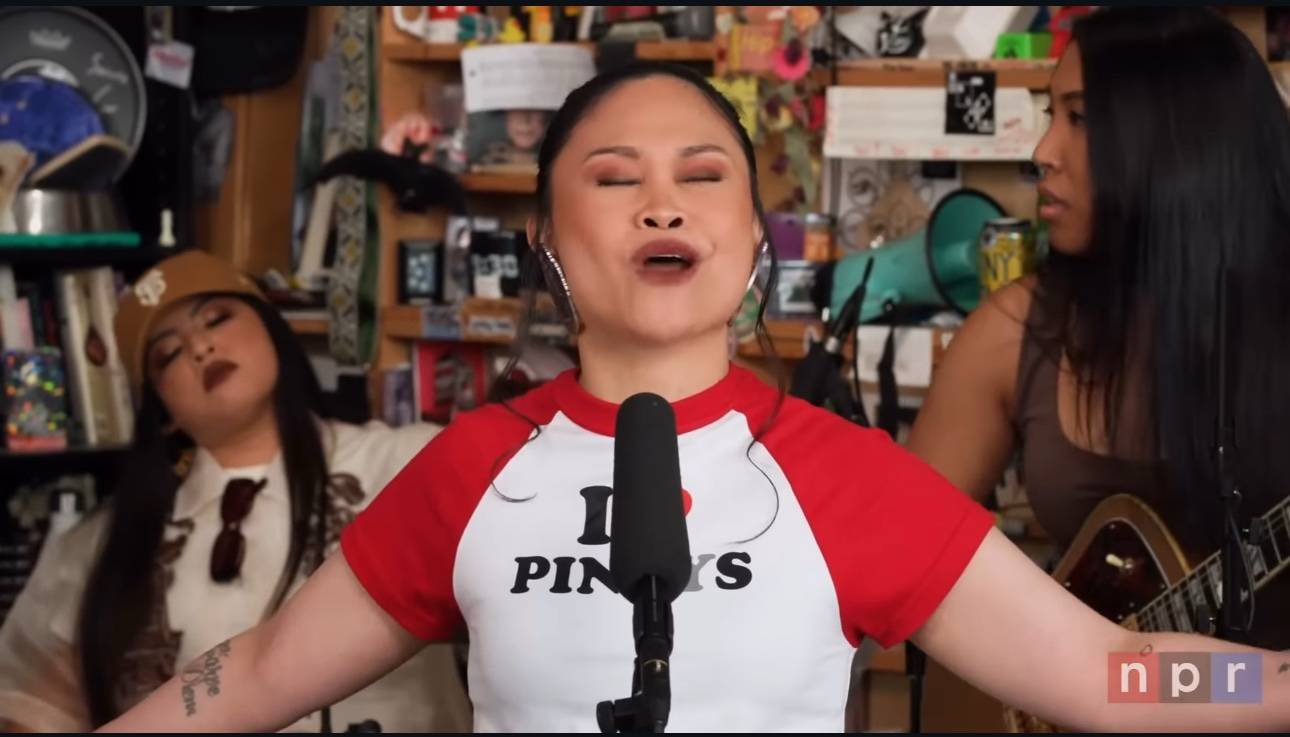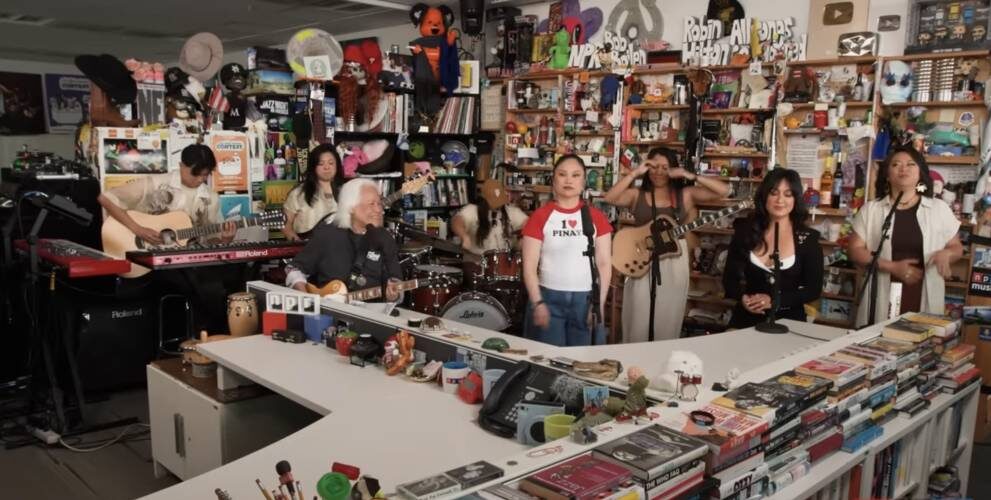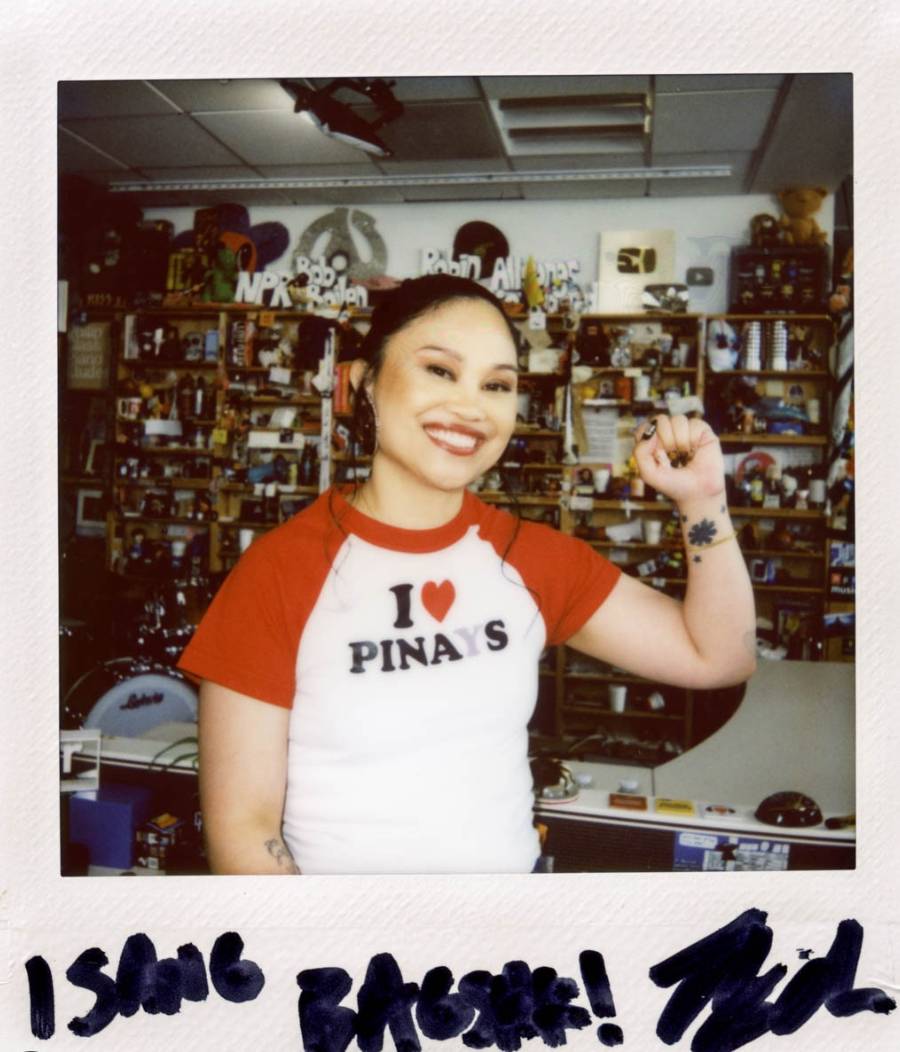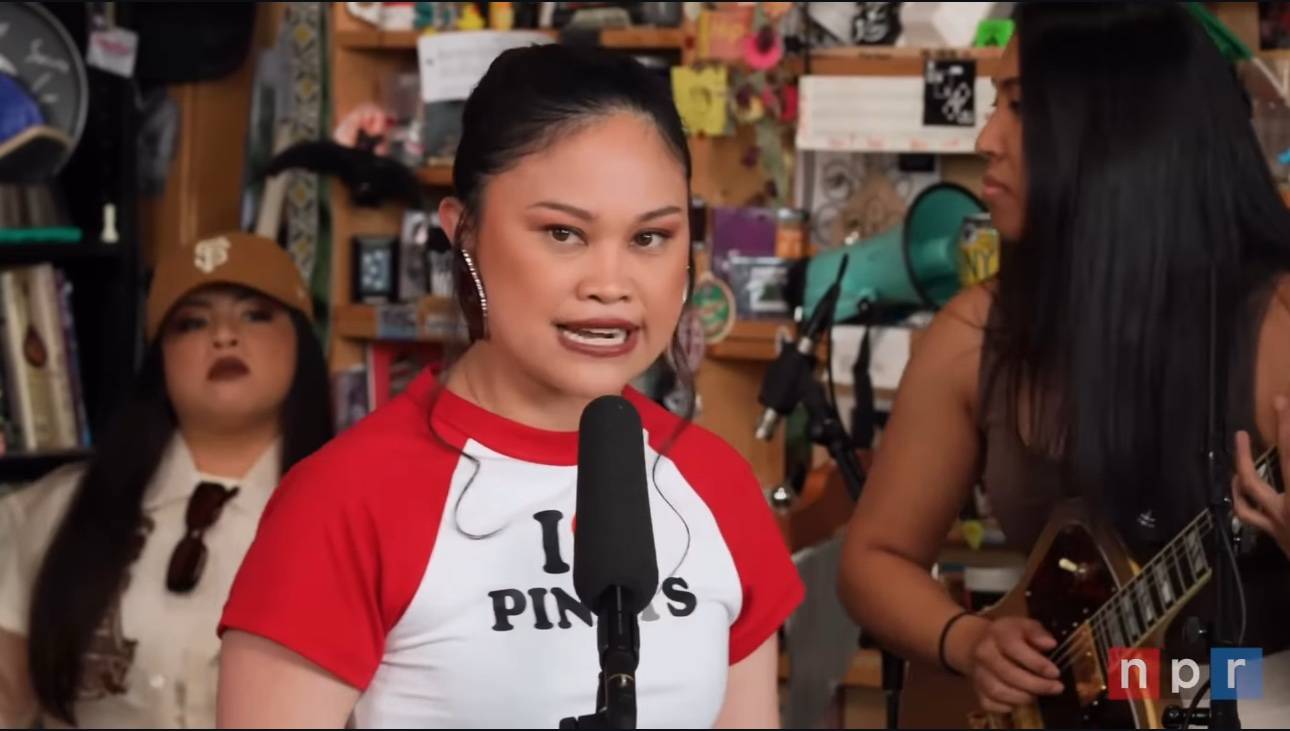Ruby Ibarra: A Filipino voice too powerful to ignore

Hip-hop has never been my thing. Lauryn Hill just about sums up my hip-hop affinity. Lately, however, the genre has been getting a lot of attention, and it’s all because Ruby Ibarra won the NPR Tiny Desk Contest.
Now, NPR’s Tiny Desk Concerts—I’m a fan. It’s one of those foreign shows that got me hooked in the 2000s, along with “Later … with Jools Holland,” BBC Radio 1’s “Live Lounge,” and “La Blogothèque”—where artists perform live in intimate, stripped-down settings.
When I saw NPR Music’s announcement last month, my interest was piqued not only because Ibarra is Filipina: She was born in Tacloban City and grew up in the San Francisco Bay Area, where her family moved in 1991 when she was 4 years old. Her winning song, “Bakunawa,” features lyrics in Tagalog, Bisaya, and English. In its 11-year history, the NPR Tiny Desk Contest has not chosen a song that is performed in three languages. That was creative and brave.
“Language is an important part of the culture,” Ibarra was quoted in the Center for Asian American Media. “I would have done an album a disservice if I had this project talking about the Filipino American experience and not include elements of Filipino language.”

She was certainly unapologetic about making language central in her music. She explained to Vilcek Foundation that, “Language is a form of survival for a lot of immigrant families … I don’t owe it to anyone to provide a translation—the same way as when I came here to America with my family, we were expected to know, understand, and learn English immediately.”
Immigrant’s story
Far from mere gimmickry, it speaks of values, striking at the core of an immigrant’s story, a Filipino’s tale, the freedom to speak one’s mother tongue.
Ibarra was fiery and confident on stage at the Tiny Desk Concert. She introduced herself: “This immigrant is here. From Tacloban City, Philippines, all the way to Washington, D.C., my name is Ruby Ibarra.”

She sang about resistance and “fighting against being erased” in “Bakunawa”:
Protect my story so I said it first
If I don’t know me, what is my past
If I don’t know me, what is my path
Tell me what is freedom, tell me what’s your name
In “7,000 Miles,” reminiscent of “The Miseducation of Lauryn Hill,” she sang about her family’s plight:
November 1991, papa came here with a wife
2 daughters, no money, but they wanted them a better life
Piso to their name, so they piecing up the pain
Ain’t no peace in a position as an immigrant that’s prayin
For a piece of that Americana pie or for the C.R.E.A.M.
To appease the dream they sold you, but it only was a dream
For a piece of mind to thinking that my mama could be seen
As an equal not a foreign immigrant, or in between
In “Someday,” somehow reminding me of Hamilton’s “My Shot,” she sang about her mother who left her history as a cum laude accountancy graduate to take on odd jobs in America:
I study my mother, wonder how she holds this family
That minimum salary, stretched as much as it can be
She stressed but keeps that shit from me, I’m just tryna fit in, see
… I said, “Mama, we gon’ make it there someday”
Representation as entryway
Consistent with her belief in paying it forward, she brought seven Filipino artists with her to the tiny stage, including June Millington whose musical career started in 1965. “We can’t do this thing by ourselves,” she told Vogue in 2023. “That means hiring bandmates, stage managers, videographers in my community and opening the doors and telling them, ‘Let’s enter this space together.’”
To us in the Philippines, we might think that luck finally showed up for Ibarra. But she has been a rapper and spoken word artist for over a decade. In 2010, she wrote and performed “Who I Am” for the Pilipino Culture Night at the University of California, Davis, where she was studying. She released her first album, “CIRCA91,” in 2017, including her favorite song, “Us,” a song used for the Women’s International Day and, with its isang bagsak line, would connect with developmental workers.

Ibarra wrote and performed “A Thousand Cuts” upon the request of Ramona Diaz for the Maria Ressa documentary in 2020. Her own label was set up in 2023. And in between, her work was featured in commercials, video games, and TV shows.
And it looks like there’s more to expect from her. Achieving representation is huge, but Ibarra doesn’t want to stop there, telling Hella Pinay that representation is “just the entryway for people to know about our community” and “it’s liberation and education that we need. It’s equipping our communities with the resources.”
It’s thrilling to hear her speak about education and helping open doors. To wield power, there has to be discourse about values and beliefs, and building of communities. She is one tough Filipina, that Ruby Ibarra. Better listen up.





















